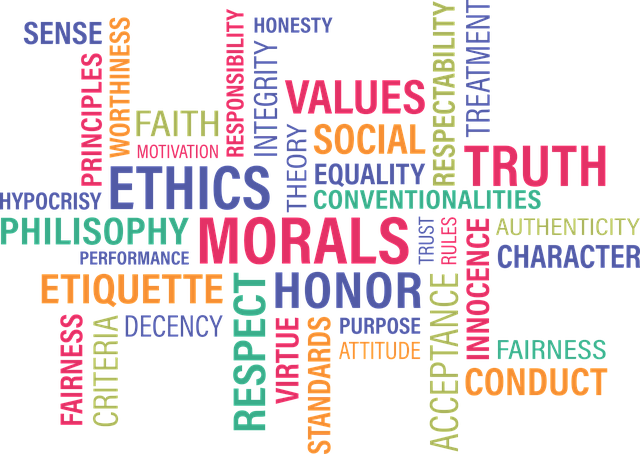AuthorNebo D. Lukovich What is a lie? To answer that, we have to know what the truth is in the first place. Are we talking about the real truth or just an information about some person or event? Information about the truth can be conveyed, but the very truth can only be experienced. Therefore, lies are hiding or distorting the information on the truth. There is no absolute honesty. To achieve that, we would have to be a completely enlightened being. Such a being lives in the Truth and doesn’t have to lie at all. Their life is the Truth and everything around them always mirrors that inner Truth. It’s not always pleasant, though, but it’s always the Truth. Yet, we are not the enlightened ones. Or at least I am not. So, we do lie. And we will inevitably lie from time to time. We live in this material world, in these bodies with severely limited perception. We don’t recognize the Truth. We are just receiving and filtering streams of information about the world outside and our inner reality as well, all the time. However, the most important thing on this subject is that we must be honest with ourselves. Always. That’s the precondition for outward honesty. Are there situations that really demand lies? The holographic principle teaches us that our surrounding is always a projection of our inner world, in a symbolical way. People around us are always playing different roles corresponding to particular inner parts of our own personality. Therefore, when we are lying to someone, it’s a projection of our fears, anger, desires, beliefs, habits or other aspects of our being. When we lie to somebody, even if it’s a “white lie,” we are lying to ourselves. That person is a symbolical projection of a part of our own being, demanding an answer. It wants the truth about something. The part has probably been long suppressed and now emerges onto the surface of our being. The outer communication in which the lie has emerged is a result of relations between the inner parts of our being. One part is asking for the truth, and another is trying to hide it. The relationship in the real world symbolically mirrors the inner conflict. What is the morality of lying? The question of moral behavior is certainly of a great importance in any psychological or spiritual system. If we had acted immorally, that action will generate suffering in the long run. Let me cite a few sentences from “Inner Peace, Outer Success” [1] here: “Immoral conduct inevitably produces remorse inside you, at least on a subconscious level. It also yields resentment in others. Remorse and resentment generate anger and suffering. This will result in major setbacks to your work on yourself and in your life generally.” [1] “Inner Peace, Outer Success” by Nebo D. Lukovich, Reintegration Publishing, 2016, https://www.amazon.com/Inner-Peace-Outer-Success-Reintegration-ebook/dp/B01KD221D8 In some life situations, we are indeed forced to lie. There could be a variety of possible reasons for such behavior, many of them being legitimate. For example, if our very survival or the survival of our loved ones has been compromised, sometimes we will be forced to lie. Nevertheless, we have to avoid lying and use it as the last option. As said in the above-mentioned book, “Moral behavior is a matter of pure decision and firmness, assisted by Love, Presence and Reintegration techniques. Whenever you find yourself on the verge of immoral conduct, if you feel a temptation to act dishonestly, bring yourself into the state of pure Love. It dissolves dishonest inclinations, anger, resentment, fear, pain and other negative emotions at their roots.”[1] Another great way to discern whether a situation really demands some sort of a lie is to enter the state of Presence. We have to involve mindfulness. Presence is a state of being here and now, aware, usually without thoughts. Generally speaking, surroundings that demand lies are disturbing and stressful. In such cases, it’s very hard to stay calm and enter the state of presence. It’s even hard to remember that we need presence. However, for each individual, there are always several characteristic circumstances that are challenging. And they are generally recurrent. Therefore, we can introduce triggers for launching the state of presence to find the best way of behaving and facing the situation. You can find many pieces of advice on the triggers for presence in “Inner Peace, Outer Success,” as well as in several other blog posts here. [1] “Inner Peace, Outer Success” by Nebo D. Lukovich, Reintegration Publishing, 2016 What if we find ourselves in lying? Don’t force yourself to stop lying in the middle of a conversation. It may seem awkward to your companions and can put you in a more unpleasant situation. Instead, continue with talking, and just become aware of everything you say, your body and your surroundings. Accept the situation wholeheartedly. Try to be present, to be mindful. If you succeed in that, even for several seconds, that will probably be enough to transform your behavior and communication. You will either stop lying or continue with it but in a totally different and more benevolent way. Entering the here and now is the key. How to deal with our lies from the past? We should deal with our lying in a serious way only if the lies are repetitive and/or harmful, to us or others. Such lies are telling us something important – we have to deal with our own suppressed and unresolved emotions, identifications and other parts of our personality. Those parts are trying to express themselves, this time through lying. Keep in mind that such aspects of our being are not bad at all. They are just seeking to protect us with this behavior, although in an unsuitable way (check out the Chain of Goals – a gradual process through which an initially well-intended aspect of our being becomes an ill-behaved part). As said before, the process of lying to another person is a projection of the conflicts between the inner parts of our personality. So, after each unpleasant dialog in which we behaved inappropriately, whenever we have some spare time we should revive the memory of it and thoroughly deal with our deeds. How to do that? Evoke the conversation as vividly as possible and use the Dissolving the Temporary I Plus (DTI+) or Gentle Touch of Presence (GTP)[1] techniques on it. Do that as many times as you can. Even better solution is to apply an extremely efficient Reintegration technique called the “Inner Triangle.”[2] It is a technique that involves reintegration of two opposite parts of your personality, in this case – two parts that represent your and the other person’s standpoints in the conversation. Eventually, those parts will merge and attain their highest state of existence – the unity with Divine. That way, your particular problem or immoral behavior has been uprooted and solved forever. [1] More on this technique you can find in “Inner Peace, Outer Success” or “Inner Freedom Techniques” (check out this page: http://www.re-integration.com/book-excerpt-inner-peace-outer-success-re-integration-system.html) [2] Ibid. Conclusion
Whenever you can - avoid lying, even at the price of suppressing it temporarily. That’s much better than to commit the immoral deed and regret it forever. Such a suppressed deed you will be able to handle later anyway with various Reintegration procedures or other psychological or spiritual techniques. On the other hand, an expressed big lie or another immoral deed would have produced remorse, resentment, anger and pain in yourself and others, which would be much harder to overcome later.
0 Comments
Your comment will be posted after it is approved.
Leave a Reply. |
Please note that most of the articles have a "Read More" break, which is sometimes hardly visible.
It is located at the bottom of visible part of the article, on the right side. To continue reading the article, click on that link. This page may contain affiliate links meaning we earn a commission if you use those links.
We only recommend pages we appreciate and trust. Archives
March 2023
Categories
All

|
For guest posts or placing ads on our website, please use the contact form on the 'About/Contact Us' page.






 RSS Feed
RSS Feed

